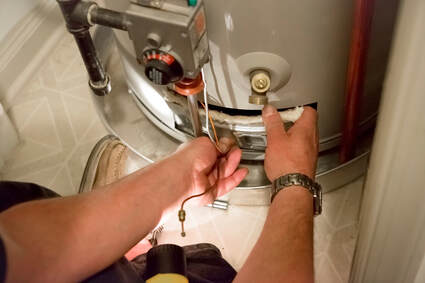Should you repair or replace your water heater?
It may not be the most exciting answer, but the truth is that it depends!
While a water heater may not be as glamorous as a sports car or luxury vacation, it can still bring a sense of satisfaction. Starting the day with a hot shower can set the tone for the rest of the day, and the quality of that experience can make all the difference.
After all, who wouldn't prefer to start their day on a positive note?
Facts and Circumstances
- Immediate Replacement After Major Failure When a water heater explodes, causing extensive flooding, it's clear that replacement is necessary. Along with installing a new unit, you'll also need to address the significant water damage caused by this catastrophic event.
- Replace at Signs of Leaks If there's noticeable leaking from your water heater, especially from areas other than the inlet or outlet pipes, it's a precursor to major failure. Shut off the supply valve immediately and plan for a replacement to prevent potential flooding.
- Consider Age and Maintenance History A water heater that's over 10-15 years old or poorly maintained is likely past its prime. Proactively replacing it can prevent the hassles of sudden failure. Remember, waiting for a breakdown is often more costly than preemptive replacement.
- Understanding Lifespan and Maintenance Water heaters typically last 7-10 years. Regular maintenance can extend this lifespan, but if significant repairs are needed near the decade mark, especially on a poorly maintained unit, replacement might be more economical.
- Invest in Regular Maintenance Routine maintenance can significantly prolong the life of your water heater and prevent unexpected failures. This investment often pays off by delaying the need for a costly replacement.
- Prolonging Water Heater Life Regular maintenance, including replacing the sacrificial anode around the 5-year mark, can significantly extend your water heater's life. This component is key to preventing rust and ensuring the unit's longevity.
- Upgrade for Better Performance If your current water heater doesn't meet your family's needs due to size or performance issues, consider upgrading. Various options are available to improve your hot water experience.
- Economic Considerations When deciding between repair and replacement, assess the economics. If repair costs are low compared to a new unit and your current water heater is in reasonable condition, repairing might be more viable. However, consider the age, condition, and performance of your existing unit in your decision.
When faced with the decision of repairing or replacing your water heater, remember that involving Comfortable Homes means you're not just choosing a service, but a partner who prioritizes your home's efficiency, safety, and your peace of mind.
We're here to guide you with expertise and care, ensuring that your choice aligns perfectly with your needs and budget. Trust us to make your hot water system as reliable and efficient as your home deserves. Your comfort is our commitment.
We're here to guide you with expertise and care, ensuring that your choice aligns perfectly with your needs and budget. Trust us to make your hot water system as reliable and efficient as your home deserves. Your comfort is our commitment.


